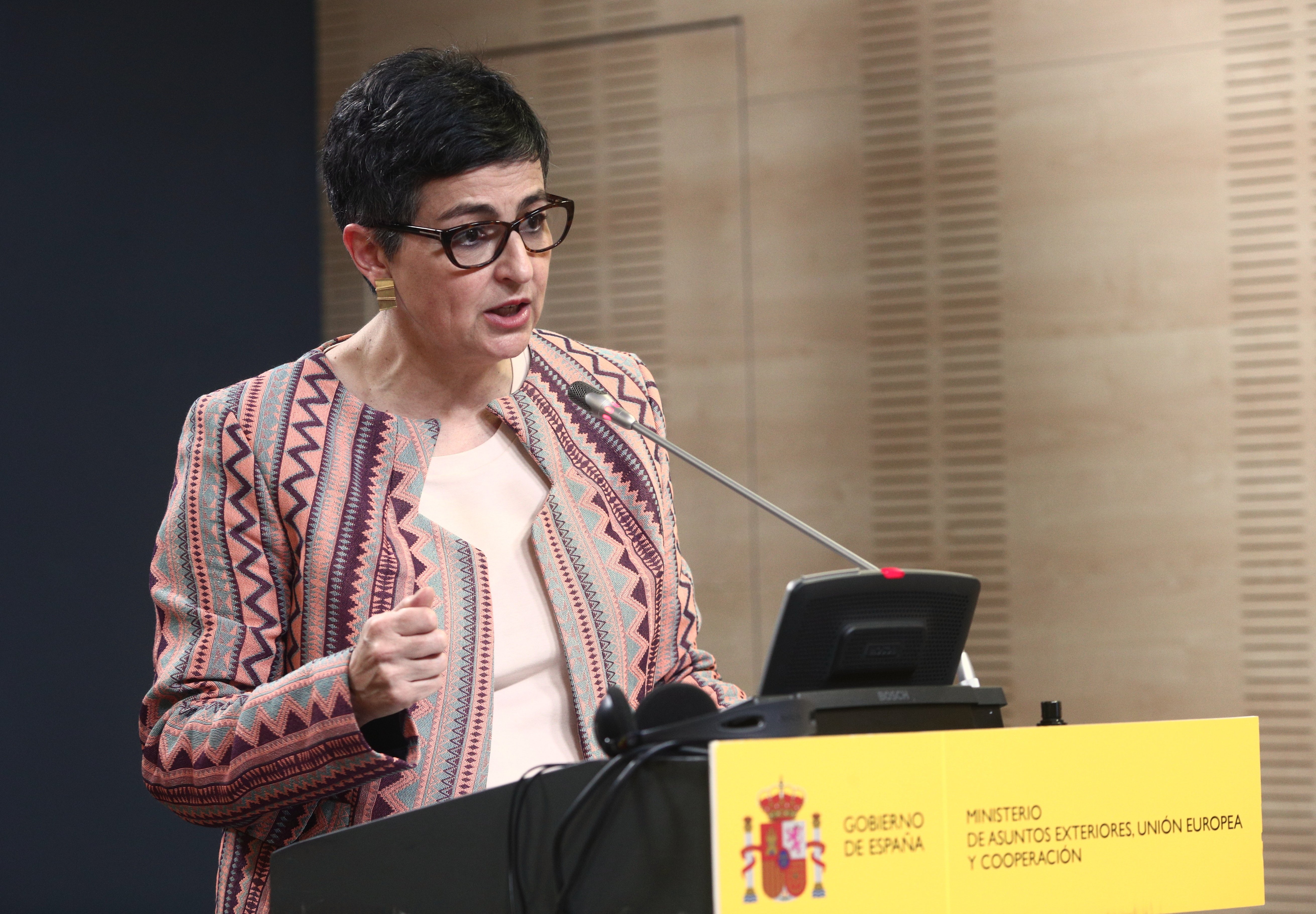Spanish diplomacy continues its efforts to discredit the Catalan independence movement abroad. This time it was foreign minister Arancha González Laya, in an interview on Estonian public television. In a country which managed to restore its own independence from a dominating power just 30 years ago, much of the conversation revolved around Catalonia. The foreign minister not only disdained the pro-independence majority achieved at the recent Catalan elections, which is insufficient for the Spanish government, but also "took offence" at the comparison of the jailed pro-independence leaders with the case of Russian dissident Aleksei Navalni. Asked about Carles Puigdemont, she said that as an MEP he enjoys all his rights.
In an interview with the public channel ETV, Arancha González Laya defended that "Catalonia is a part of Spain", and that "Spain is a democracy with a constitution that all Spaniards, including all Catalans, have given us". That is why, she continued, "what matters is what all Spaniards decide to do, together."
Arancha González Laya asserts to Estonian television (in English) that Puigdemont "enjoys the same rights and liberties as everyone"
Continuing in this line, the Spanish foreign minister dipped into the Spanish government's usual arguments, saying that "when we speak of Catalonia, not all Catalans think in the same way." However, she misrepresented the pro-independence majority of 52% of the vote, quoting figures which matched neither the majority achieved in the actual vote, nor the proportions of the total electoral role: "Only 35% or 37% of Catalans in the last elections in Catalonia want to follow this path", she claimed, also raising the spectre of a possible contagion effect on "other regions of Spain that have their own language and self-government". González Laya defended that the Spanish Constitution speaks of "majorities in Catalonia and in Spain". Anything else, she warned, would be "chaos."
Asked about Catalan president in exile Carles Puigdemont, the foreign minister stressed that "he is not in prison" and that "as a member of the European Parliament he lives in liberty and enjoys the same rights and freedoms as any citizen." she also took the opportunity to deny the existence of political prisoners in Spain: "They are in prison for breaking Spanish law." In this regard, she stated that she was "offended" by the comparison with Alexei Navalni in Russia. "Spain is a democracy" and they have "broken the law," she concluded.
Arancha González Laya tells Estonian television (in English) that "In the end, what matters is what Spaniards decide together"
The Spanish government line
This is the same argument that the Spanish government has used since Catalonia's 14th February election, at which the vote for pro-independence parties exceeded 50% of the popular vote for the first time. Just after the election, at a press conference in Madrid, deputy PM Carmen Calvo was asked if 52% support for pro-independence parties changed the paradigm. Clear answer: no. "A referendum is not provided for in our Constitution for a matter such as territorial unity," she said. And she went further: "The percentage doesn't matter, because in our country it is not constitutional and it is not legal." And she concluded in this regard: "It has no place because it cannot have one within the framework of our legality."

